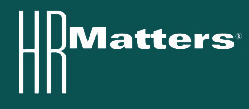10 Major Concepts Impacting the Future of the Workplace
A Talent Management.com blog article by Daniel Rasmus suggests that the future of the workplace could look quite a bit different than it does today. Demographic shifts, globalization and a continually changing technological environment will create a very different workplace – an environment that will require different work practices from the traditional practices we are used to.
Talent leaders can look forward to models that are much less standardized, models that will require constant adaptation. The traditional hire-to-retire model may not be the same in the future, as new work models and relationships may differ in the future from what we have become accustomed to. The article supplies 10 new concepts that will shape tomorrow’s organizational workplace.
1. Transparency and trust: As organizations pull out of the Great Recession, they may find their reputations as reliable employers permanently tarnished by layoffs and a slow return to hiring.
2. Out-tasking: Outsourcing is passe, but it will continue.
3. Contracting: Contractors are no longer independent identities.
4. Contract-to-hire: Contract-to-hire may provide the balance between renting talent and filling a role.
5. On-boarding: As organizations stretch their boundaries, on-boarding will become more global, and as they coordinate better between work and life, more intimate.
6. Parallel promotions: Becoming the boss may not be in most people’s future, because being a boss may not be a job.
7. Hire-to-automate: Knowledge workers and information workers will encounter more automation as the decade unfolds.
8. Business continuity: Organizations need to develop active and passive means to gather and vet knowledge, rapidly disbursing it and looking for changes, improvements and discontinuities over time.
9. Demographic shifts: Demographic shifts during the next decade won’t be limited to millennials figuring out how to work with baby boomers.
10. Virtual work: Today, virtual work is something most people experience as an alternative to the traditional workplace.
With all of the above in mind, talent and performance management will be a noteworthy issue because of the decrease in person-to-person workplace interactions. What can talent managers do to make the most of performance management? How can this role be best fulfilled when a majority of work will be done virtually? Perhaps one of the best tactics is to focus on programs that are based on results. In the end, these concepts are merely that: concepts. The future is still wide open – – but these concepts can certainly help you to focus on how the be the best talent manager possible, and how to attract and retain talent in a changing work environment. Planning is never a guarantee for success, but it certainly never hurt. To read more about these concepts and how they can benefit your talent management planning process, click here to read the full article.
